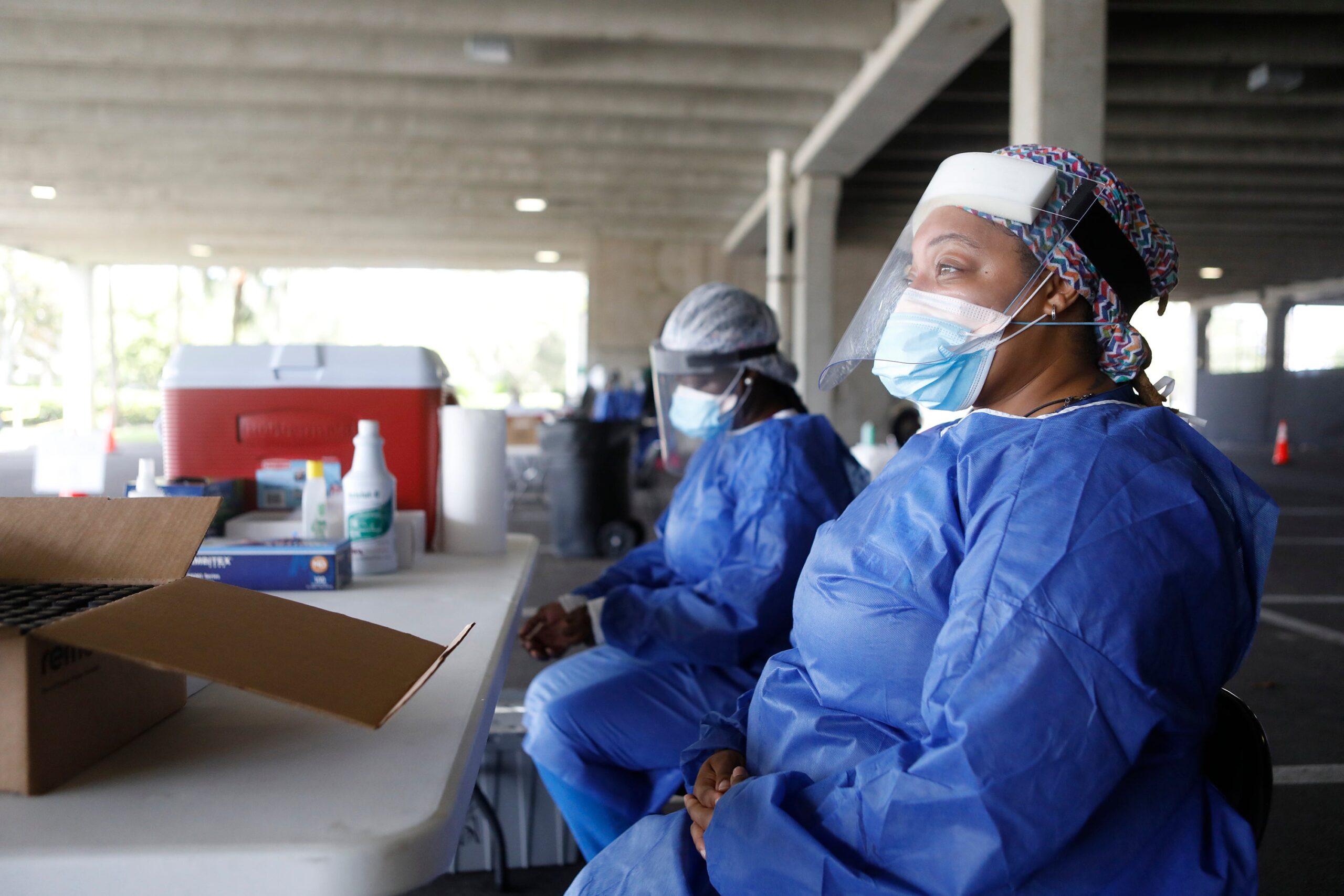Buried in last night’s “presidential” debate, which was mostly a melee of aggressive interruptions and President Donald Trump’s staunch refusal to disavow white supremacists (in fact, calling one such group to attention), was a painful and important fact: To date, 1 in 1,000 Black Americans have been killed by COVID-19, the disease caused by the novel coronavirus.
The statistic was dropped by Democratic presidential nominee Joe Biden, who challenged Trump’s assertion that his presidency has helped Black Americans.
Suggested Reading
“You talk about helping African Americans—1 in 1,000 African Americans has been killed because of the coronavirus,” Biden said Tuesday night in Cleveland. “And if he doesn’t do something quickly, by the end of the year, 1 in 500 will have been killed. 1 in 500 African Americans.”
“This man is the savior of African Americans? This man cares at all? This man’s done virtually nothing,” he continued. “Look, the fact is, you have to look at what he talks about. You have to look at what he did, and what he did has been disastrous for the African American community.”
Ahhh, facts, those silly old things. Vox confirmed that Biden’s figures were correct, citing the APM Research Lab.
Vox summarized that, as of mid-September:
1 in 1,020 Black Americans has died (or 97.9 deaths per 100,000).” More than 200,000 Americans are confirmed dead from Covid-19, and a disproportionate number of them are Black. It’s that simple. (Biden’s statement that 1 in 500 could die by the end of the year without swift action would appear to reflect the estimates that the US death toll could grow to 400,000 by January 1.)
As The Root has previously reported, the reasons why Black Americans have suffered disproportionately high rates of death from the coronavirus are myriad. Underlying conditions like heart disease, cancer, and asthma make people more susceptible to developing COVID-19, but these underlying conditions aren’t simply a matter of personal choices or genetics.
“Let’s not play that it’s only about our genetic basis. The truth of the matter is when you live in high-stress areas—poor access to food, when you’re in a house where you cannot separate—remember those things are impacting your genes in real-time,” Dr. Robert Winn, Director of the Massey Cancer Center at Virginia Commonwealth University, recently told WAVY TV. Winn has partnered with Oxford University researchers to investigate whether DNA that causes high blood pressure in African Americans could also be contributing to the COVID-19 death toll.
But these “high-stress areas” aren’t the only environmental factor at play. Black Americans are also more likely to work jobs considered “essential,” which increases the risk of exposure since they have been more likely to work throughout the duration of the pandemic. Housing segregation has also played a considerable role in the lack of access to medical care. This created health disparities well before the pandemic and has magnified the effects of the coronavirus in redlined communities.
Some places that started tracking racial disparities early on in the pandemic seem to have equalized contraction rates. In Michigan, where Black residents have represented nearly 30 percent of all coronavirus cases and 40.7 percent of related deaths since the start of the pandemic, the rate of infection for Black people has slowed down dramatically compared to those of whites in recent weeks. According to the Detroit News, state health officials say case rates for Black residents are down to 8.2 percent of new confirmed cases, and 9.9 percent of deaths. White people, meanwhile, made up 88.7 percent of new cases and 88.9 percent of deaths in the last two weeks.
“Two weeks of data is a little premature to say that the war on racial disparities and COVID-19 has been won,” said Jaime Slaughter-Acey, an assistant professor of epidemiology who studies racial disparities in health at University of Minnesota School of Public Health.
“Before we can truly be saying that we have won this war against COVID with respect to racial disparities, we need a couple more months of data showing that rates among Black Americans in Michigan have stabilized,” Slaughter-Acey said.
“What we would like to see is that rates among white residents are staying stable and rates among Black residents are decreasing,” she continued. “You don’t want a disparity to narrow just because the group that was having fewer cases is having more cases.”
As epidemiologists and public health experts express concern about a surge of coronavirus cases during the fall and winter season, they are repeating some tried-and-true guidelines for keeping the spread of the virus down: continue wearing facemasks, continue practicing social distancing, and get a flu shot.
Straight From 
Sign up for our free daily newsletter.


